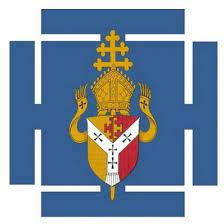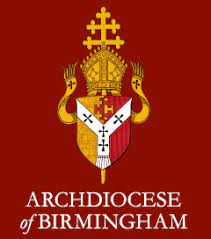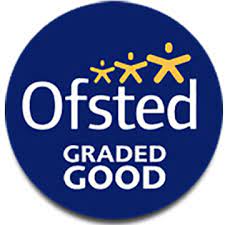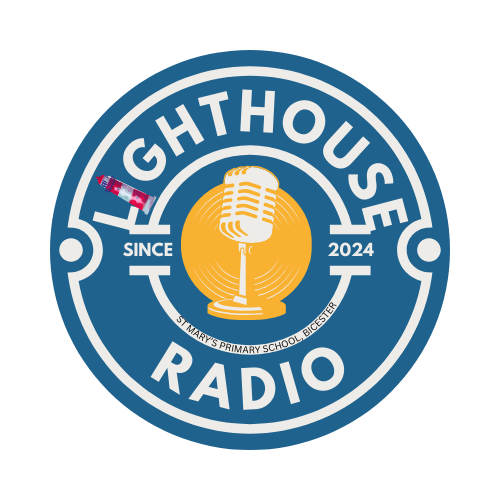Music

Overview
Music is a subject that is fun, inspiring and exciting but also academically challenging. Music is a universal language that exemplifies one of the highest forms of creativity, something that at St. Mary’s Catholic Primary School we aim to cultivate in our pupils. All children should feel that they are musical, and develop a life-long love of music a nd a desire to become musicians. Children develop the skills, knowledge and understanding that is needed to become confident performers, composers and listeners. We encourage children to develop music skills of singing, playing tuned and untuned instruments, improvising and composing music, alongside listening and responding to music. All children will have the opportunity to learn how to play tuned and untuned instruments, as well as access to high quality music workshops, lessons and specialists. We aim to have a high-quality music education that should engage and inspire pupils to develop a love of music and foster their talent as musicians, and so increase their self-confidence, creativity and sense of achievement.
nd a desire to become musicians. Children develop the skills, knowledge and understanding that is needed to become confident performers, composers and listeners. We encourage children to develop music skills of singing, playing tuned and untuned instruments, improvising and composing music, alongside listening and responding to music. All children will have the opportunity to learn how to play tuned and untuned instruments, as well as access to high quality music workshops, lessons and specialists. We aim to have a high-quality music education that should engage and inspire pupils to develop a love of music and foster their talent as musicians, and so increase their self-confidence, creativity and sense of achievement.
Intent
At St Mary’s, we utilise Kapow Primary’s Music scheme of work. The scheme takes a holistic approach to music, in which the individual strands are woven together to create engaging and enriching learning experiences. The strands are as follows:
- Performing
- Listening
- Composing
- The history of music
- The inter-related dimensions of music
Over the course of the scheme, children will be taught how to sing fluently and expressively and play tunned and untuned instruments accurately and with control. They will learn to recognise and name interrelated dimensions of music – pitch, duration, tempo, timbre, structure, textures and dynamics. Our children will then have the opportunity to use this knowledge in their own improvisations and compositions. The learning of how to play a tunned instruments is taught by a specialist teacher.
Our music curriculum is mapped so that all of the National Curriculum attainment targets are met. It shows progression of skills taught within each year group and how these skills develop year on year to ensure attainment targets are securely met by the end of each key stage. The curriculum follows a spiral curriculum model where previous skills and knowledge are returned to and built upon.
The intention of our music scheme is first and foremost to help children to feel that they are musical, and to develop a life-long love of music. We focus on developing the skills, knowledge and understanding that children need in order to become confident performers, composers, and listeners. Our curriculum introduces children to music from all around the world and across generations, teaching children to respect and appreciate the music of all traditions and communities.
Children will develop the musical skills of singing, playing tuned and untuned instruments, improvising and composing music, and listening and responding to music. They will develop an understanding of the history and cultural context of the music that they listen to and learn how music can be written down. Through music, our curriculum helps children develop transferable skills such as team-working, leadership, creative thinking, problem-solving, decision-making, and presentation and performance skills. These skills are vital to children’s development as learners and have a wider application in their general lives outside and beyond school.
Implementation
St Mary’s Music scheme takes a holistic approach to music, in which the individual strands below are woven together to create engaging and enriching learning experiences:
- Performing
- Listening
- Composing
- The history of music
- The inter-related dimensions of music
Each five-lesson unit combines these strands within a topic designed to capture pupils’ imagination and encourage them to explore music enthusiastically. Over the course of the music curriculum, children will be taught how to sing fluently and expressively, and play tuned and untuned instruments accurately and with control.
They will learn to recognise and name the interrelated dimensions of music – pitch, duration, tempo, timbre, structure, texture and dynamics – and use these expressively in their own improvisations and compositions.
The instrumental scheme lessons complement the scheme of work and allow lower key stage 2 pupils to develop their expertise in using a tuned instrument, as recommended in the Model music curriculum, during a two day workshop during the academic year.
Previous skills and knowledge are returned to and built upon as children progress through the school. Children progress in terms of tackling more complex tasks and doing more simple tasks better, as well as developing understanding and knowledge of the history of music, staff, and other musical notations, as well as the interrelated dimensions of music and more.
In each lesson, pupils will actively participate in musical activities drawn from a range of styles and traditions, developing their musical skills and their understanding of how music works. Lessons incorporate a range of teaching strategies from independent tasks, paired and group work as well as improvisation and teacher-led performances. Lessons are ‘hands-on’ and incorporate movement and dance elements, as well as making cross curricular links with other areas of learning.
Differentiated guidance is available for every lesson to ensure that lessons can be accessed by all pupils and opportunities to stretch pupils’ learning are available when required. Knowledge organisers for each unit support pupils in building a foundation of factual knowledge by encouraging recall of key facts and vocabulary.
Strong subject knowledge is vital for staff to be able to deliver a highly effective and robust music curriculum. Each unit of lessons includes multiple teacher videos to develop subject knowledge and support ongoing CPD, aiding teachers in their own acquisition of musical skills and knowledge. Further CPD opportunities can also be found via webinars with our music subject specialists. This ensures that teachers feel supported to deliver lessons of a high standard that ensure pupil progression.
At St Mary’s we work on a two year cycle covering four units of work withing each key stage. This ensures that their knowledge of Music is built on each year, that they are benefitting from full coverage of the music curriculum as well as benefitting from enrichment in music. Music enrichment is embedded through instrument lessons, Christmas concerts and plays, hymn practices and mass, weekly musician performances, workshops, Choir that partakes in performances inside and outside of school and a school that uses music across the curriculum subjects to ensure high engagement and attainment in learning.
Impact
The measure of our intent is to ensure children not only acquire the appropriate age related knowledge linked to the Music curriculum, but that they also have the skills needed to move their learning forward. This is evaluated by monitoring the progress the children make through regular assessment and review, such as recording of group performances or feedback as well as children’s written responses for what they have enjoyed and learnt. Knowledge organisers for each unit support pupils by providing a highly visual record of the key learning from the unit, encouraging recall of practical skills, key knowledge and vocabulary.
Impact is measure as follows:-
- Assessing children’s understanding of topic linked vocabulary.
- Summative assessment of pupil discussions about their learning.
- Interviewing the pupils about their learning (pupil voice).
- Teacher assessment of key skills.
- Recording live performances.
- Children evaluating their own performance.
Pupils should leave St Mary’s equipped with a range of skills to enable them to succeed in their secondary education and to be able to enjoy and appreciate music throughout their lives.
- Be confident performers, composers and listeners and will be able to express themselves musically at and beyond
- Show an appreciation and respect for a wide range of musical styles from around the world and will understand how music is influenced by the wider cultural, social, and historical contexts in which it is
- Understand the ways in which music can be written down to support performing and composing
- Demonstrate and articulate an enthusiasm for music and be able to identify their own personal musical
- Meet the end of key stage expectations outlined in the national curriculum for music
St. Mary's Whole School Progression Map Music

.






